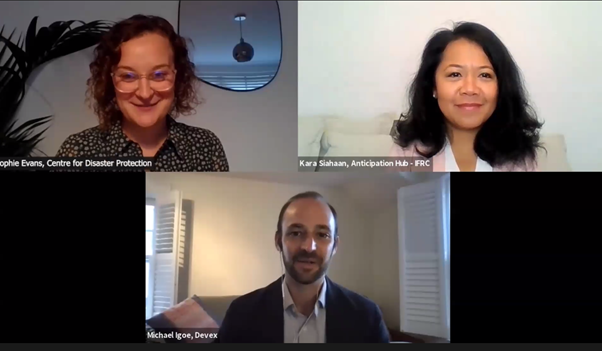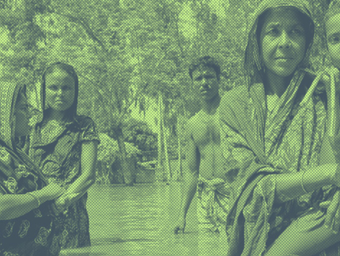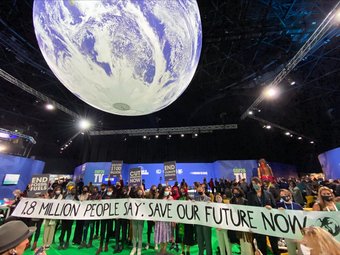Funding disaster response: what needs to change?
Kara Siahaan, head of the Anticipation Hub, was a panellist at the COP26 session ‘COP out or radically change the way the world pays for disasters’, organised by Devex in partnership with DAI and the Centre for Disaster Protection. Held on 9 November 2021, more than 1,000 people watched the event live.
A recording of the event is now available.
The international community is struggling to provide the funding needed to prepare for, respond to, and rebuild from disasters. And where money is available, it is often slow to reach affected communities. The panellists – Kara Siahaan (Anticipation Hub), Sophie Evans (Centre for Disaster Protection), Ekhosuehi Iyahen (Insurance Development Forum), Kaluki Paul Mutuku (Kenya Environmental Activists Network) and Carter Brandon (World Resources Institute) – examined how international and local actors can create mechanisms for pre-agreed financing to ensure more timely, efficient and agile responses to disasters.
The discussions also outlined some of the barriers that prevent governments from adopting anticipatory approaches – such as a lack of political will, the fragmentation of funding systems, and the need to change mindsets.
“For a long time, we have been working on very reactive solutions to addressing the humanitarian impacts of climate change,” says Kara.
“For the past seven years, we have been piloting a forecast-based finance approach for anticipatory action … we now have a set of tools and approaches, but there’s a lot of work still to be done in terms of showing the evidence that this approach works.”
To address this challenge the Anticipation Hub is working closely with its partners, including the Centre for Disaster Protection, to collect and share evidence on anticipatory action through our evidence database. We also support a practitioners working group on monitoring, evaluation, accountability and learning, which works to encourage the wider generation, exchange and use of knowledge on anticipatory action.



